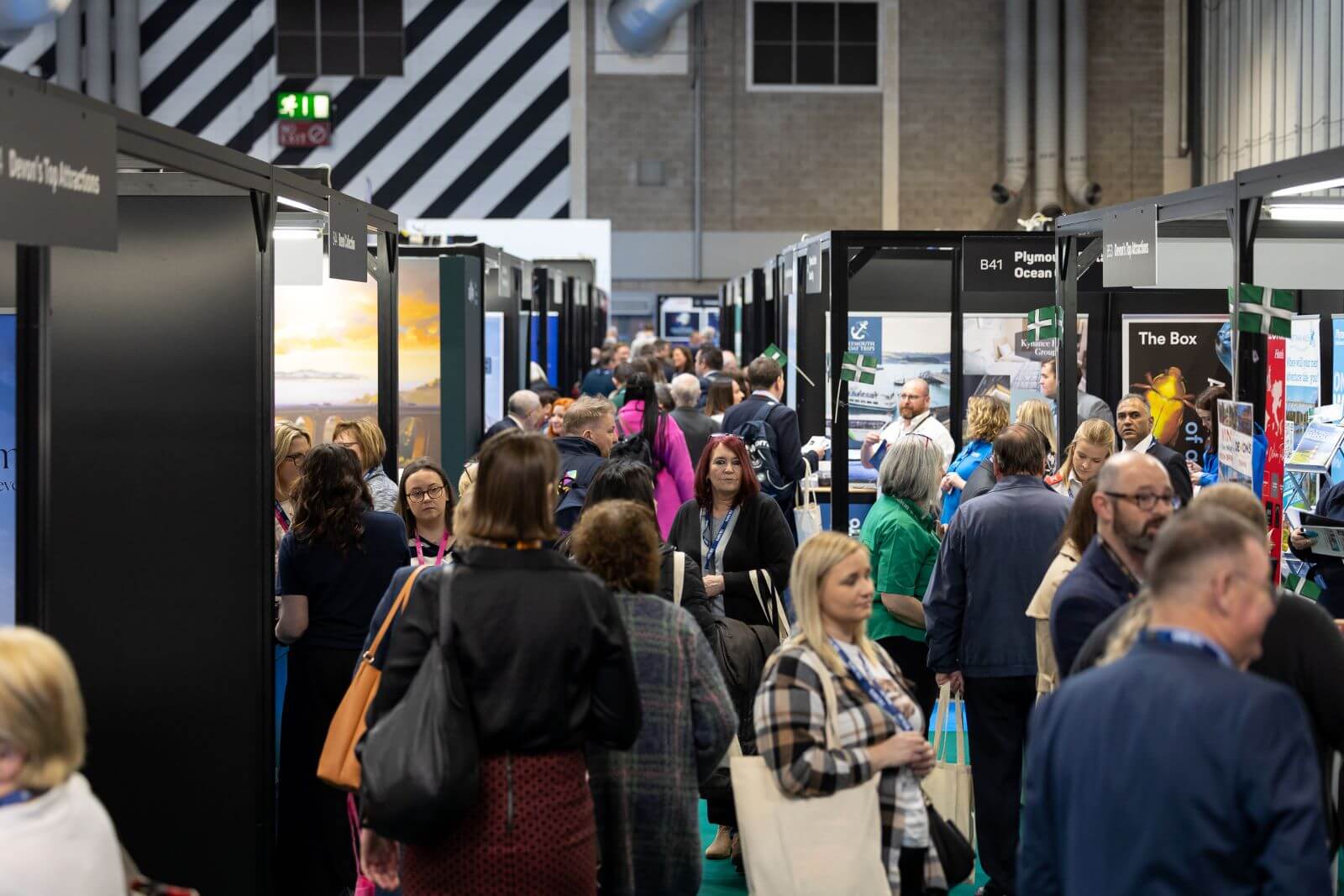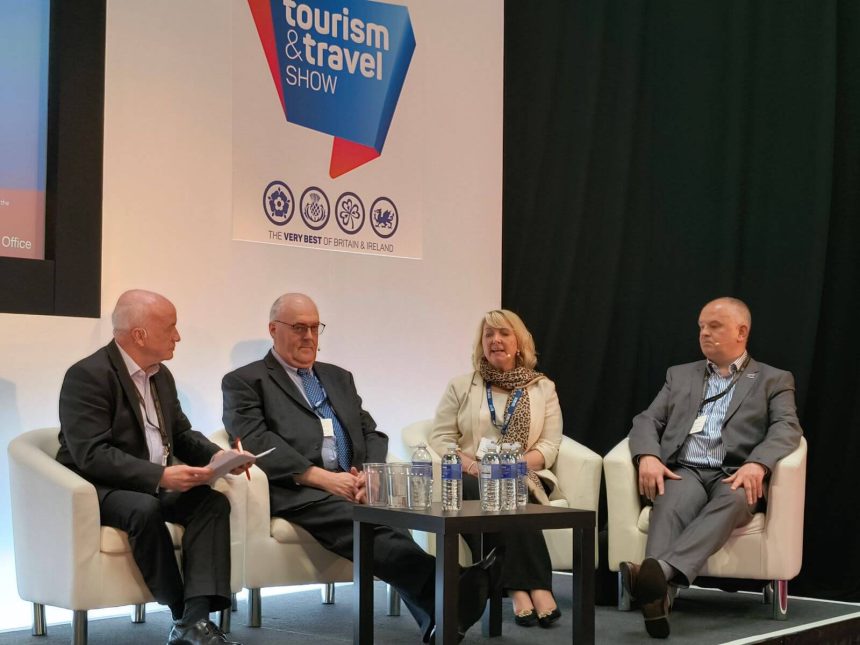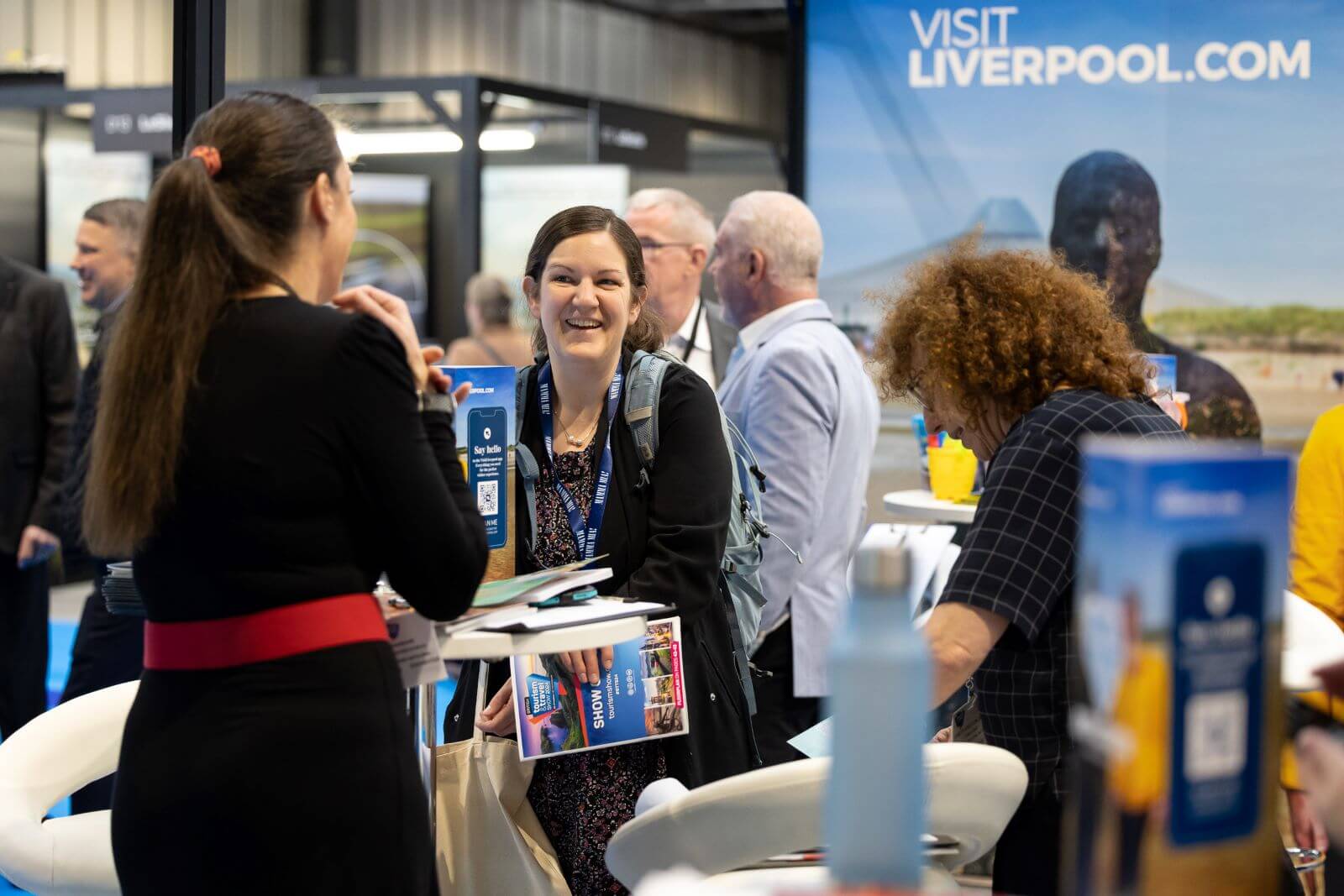The tourism market which has bounced back from the dark days of the pandemic is a different one to that which existed before. That message came across during the Keynote Theatre session “Changing Customer Expectations” at the British Tourism and Travel Show (BTTS) last month.
The segment on day one of the event on 20-21 March at the NEC focused on coach tourism with input from Amanda Harrington, Bakers Dolphin Sales and Marketing Director; David Blake, Blakes Coaches Managing Director; and Jason Edwards, Jason Edwards Travel owner.
The clientele on a typical coach trip is now more demanding, believes David, adding that operators need to react accordingly to boost commercial success.
“The expectations of our customers have, I would say, doubled since COVID,” says the MD of the Tiverton-based operation. “People’s expectations have grown to the extent that they will not tolerate things that go wrong now.”
Much mention was made with regards to operators’ dealings with hotels with which they have relationships and how they may need to adapt their approach. “It doesn’t matter what we do as a company, if you’re let down by a third party, it’s a real job sometimes for our drivers to explain to our customers on the spot,” he says.
“They expect when they’re paying £1,000 to go away on a holiday to have £1,000 return. You can’t just get away with putting an old coach on these days with a driver ununiformed; people expect a certain level of service.”
It’s not just exceeding their expectations — it’s managing their expectations – Amanda Harrington
Jason, who formed his latest business just over a year ago, adds that delivering on expectations is of utmost importance. “Our customers expect value for money,” he says. “It hasn’t got to be the cheapest, it hasn’t got to be the most expensive.
“But if we are selling a product and we contract them to that rate with three-course dinners, three choices, or whatever, they expect it.”
‘Managing expectations’
Amanda adds that it is crucial that operators ensure customers know what to expect. “Communication, for me, is key,” she says. “Every bit of communication we get from the hotel, whether it be the dinner’s going to be between 1900hrs and 2000hrs, or it’s going to be a group dinner, or whether there’s only going to be three choices, we need to make the customers aware of that before we arrive.
“It’s not just exceeding their expectations — it’s managing their expectations, which I think for us is a big thing at Bakers Dolphin.”
Communication with the hotel, as well as with the customer, was noted as being important. Jason highlighted that hotels often up their game when operators highlight negative issues. However, Amanda pointed out that further steps may be necessary. “It’s about walking away from hotels if they aren’t delivering because, otherwise, it could be damaging your reputation,” she says.

That was echoed by Tim Southby of Heathside Travel during the “Supercharge your business: the value of B2B networking through trade association membership” segment of the keynote programme.
Tim says: “People’s expectations are higher than ever and that’s probably a result of the prices jump as well over the last few years. So it’s just matching those expectations and not being afraid to cut the relationships with suppliers where they aren’t performing unfortunately.”
Both Amanda and David agreed that hotels being short of staff — in common with many other industries — was creating challenges. For David, that means, “we’ve got to dot the i’s cross the t’s on absolutely every aspect of every tour or day excursion.”
Modal shift in holidaying
The move away from flying continuing post-pandemic is hardly news, but this was highlighted with statistics at the show, including by Alexander Göransson, Euromonitor International Senior Consultant. He delivered the “Destination UK: Traveller Trends and Types” session, which highlighted research into the latest traveller habits and trends.
The peak in domestic travel immediately after the ending of COVID-19 restrictions lingers, he pointed out, while he also predicted a boom in those seeking out luxury travel. Regarding the “luxury travellers”, who are one of the eight “traveller types” of which Alexander spoke, he says: “The majority of them are willing to pay more to avoid the plane.
“If we’re looking at UK domestic tourism, similarly, the luxury travellers, they also prioritise sustainable travel features.” Although he did not refer to coach, that fact is, of course, likely to favour coach travel, given its green credentials.
He continues: “When it comes to the UK tourism outlook, we’ve got historically high numbers for domestic leisure travel that’s retracting slightly, but then it will start to grow again. And, as I’ve said, it’s always been higher than pre-COVID levels.”
Other trends in coach tourism were talked about during the aforementioned trade association membership session, in which the Coach Tourism Association (CTA) was promoted by Chairman Robert Shaw.
Asked how he had been influenced by recent networking opportunities provided by CTA, he recalled his eyes being opened by the familiarisation trip to Paris last month that included a Seine river cruise. “It (river cruising) is a product that we’ve been aware of and seen other companies be successful with, but actually experiencing it for yourself gives you the confidence to try it and sell it,” says Robert, MD of operator Harry Shaw. “And I’m sure it will become a significant part of our business in the future.”
Further, Tim feels that experienced-based trips are greatly in demand at the moment. “Gone are the days where you just get dropped off at the seaside and you spend the day there,” he says. “People want to experience distilleries, they want to experience guided tours of historic houses and everything like that.”
Marketing trends
When it comes to marketing, Bakers Dolphin has noticed that, while the pandemic brought on a move to more online bookings, the traditional approach still largely works.
“We still are in a market where people like to receive information through the post,” says Amanda, who points out the business is using television, Facebook and Instagram advertising. “We will do an email and attach the flicky brochure. We’re doing much more bookings online because, during COVID, the older people were communicating through tablets. But they still want a call — we still need that level of service.” She highlights that its customer relationship management system is proving useful also.
She stresses also the need to offer a mix of tours. She says: “Am I going to chase the under-50s to travel on a coach holiday? The answer is ‘no’. But would they try a London weekend? Probably they would, so it’s trying to diversify and understand your market.”
Bakers Dolphin is also keen to strike while the iron is hot by targeting customers as soon as they have returned from a trip. “Every time they’ve been on a tour, there’s a loyalty discount because, you know what it’s like you come back off holiday — you want to book another one,” she says.
The coach tourism sector is truly back on the up, but the take-home from BTTS is that operators need to adapt to an evolving market in order to capitalise.




























